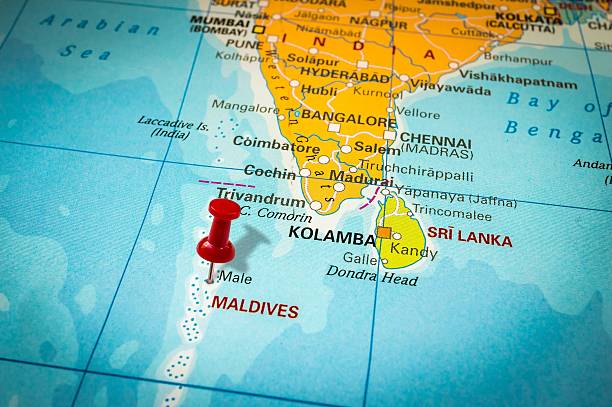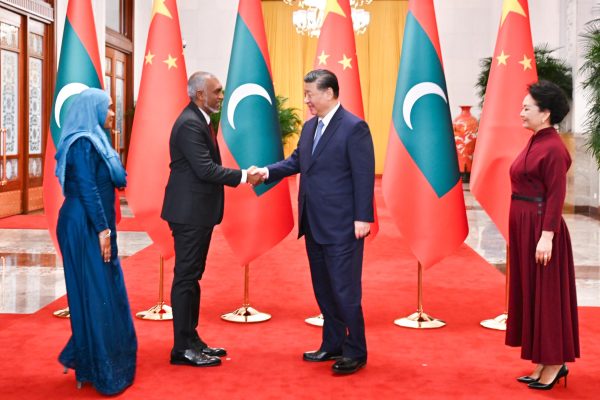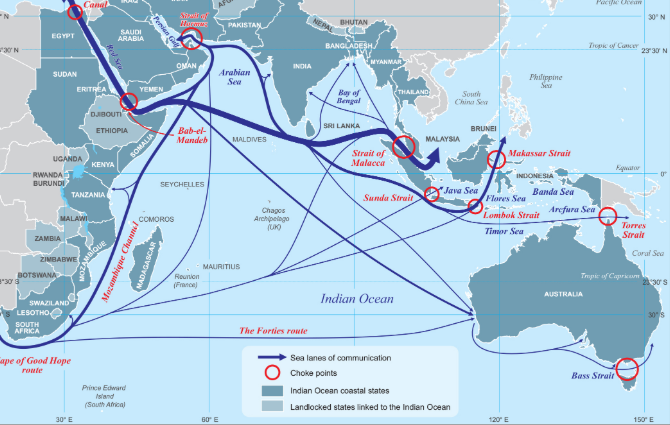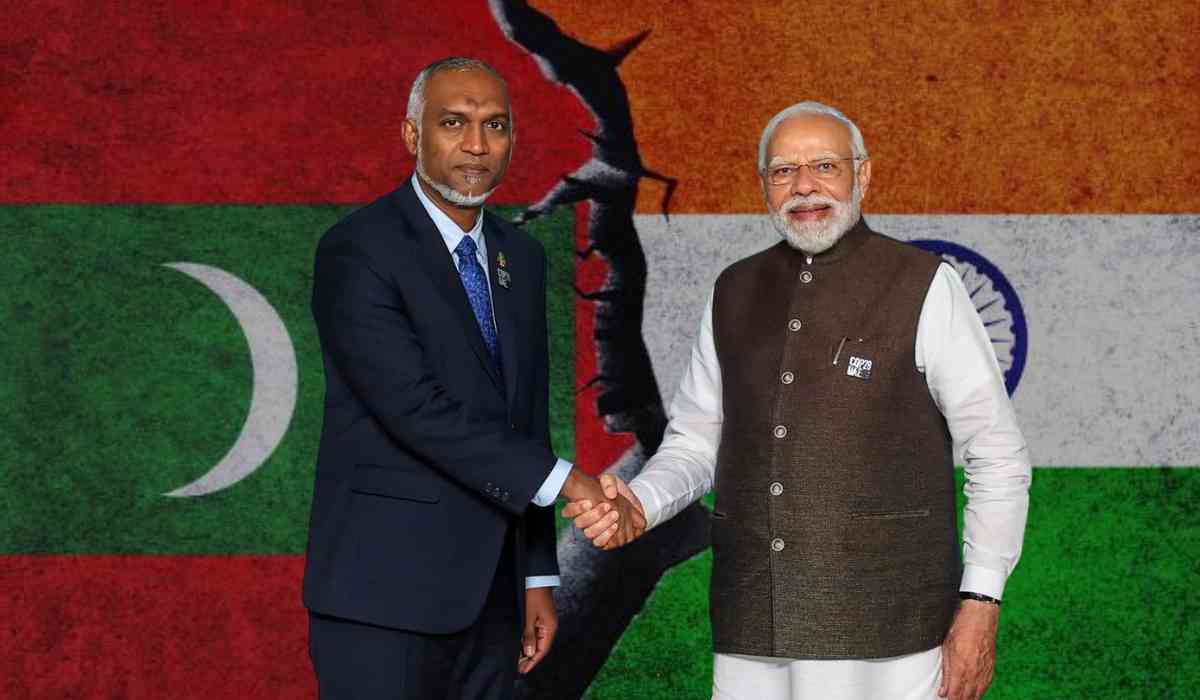The political ascendancy of President Mohamed Muizzu in the Maldives has sent ripples across the geopolitical landscape of the Asia-Pacific (APAC) region. His pro-China stance and the "India Out" campaign have raised concerns about the recalibration of power dynamics, especially for India, which has traditionally maintained significant influence in the Indian Ocean. This article explores India's nuanced response and strategic advancements to navigate these changing tides.

Understanding the Context: The Maldives and India
Before we explore India's strategic manoeuvres, let's set the stage by understanding the significance of the Maldives in India's foreign policy calculus:
1. Strategic Location:
- The Maldives, a picturesque archipelago in the Indian Ocean, lies southwest of India.
- Its strategic location near key shipping lanes makes it vital for India's security and trade.
2. Historical Ties:
- India and the Maldives share deep-rooted ethnic, linguistic, cultural, and religious connections.
- These historical bonds have fostered diplomatic cooperation and people-to-people exchanges.
3. Security Provider:
- India is seen as a net security provider in the region.
- It has been involved in various rescue and assistance operations in the Maldives.
Muizzu's Supermajority: A Challenge to Indian Diplomacy
President Muizzu's People's National Congress (PNC) securing a supermajority in the Maldivian parliament marks a decisive shift in the island nation's foreign policy. The "India Out" sentiment, coupled with Muizzu's anti-India rhetoric, underscores a growing inclination towards Beijing, potentially altering the strategic balance in the Indian Ocean.
_1713797793.png)
Diplomatic Implications:
1. Strained Relations:
- Muizzu's victory is perceived as a diplomatic setback for India.
- His pro-China inclinations and the "India Out" campaign have strained historically close ties between the two nations.
- Demands for the withdrawal of Indian military personnel and the non-renewal of the Hydrographic Pact signal a shift away from India.
2. Loss of Leverage:
- New Delhi has lost leverage in the Maldives due to Muizzu's election.
- His absolute majority in the parliamentary elections limits India's influence in the island nation.
3. Radicalization Concerns:
- Experts caution that Muizzu's victory may embolden radical Islamist elements in the Maldives.
- The shift away from India could potentially impact regional security and stability.

Overall Implications:
1. Geo-Strategic Importance:
- Maldives play a crucial role in India's sea lanes of communication (SLOCs) and trade routes.
- Ensuring stability in the Maldives is essential for India's security and energy supplies.
2. Buffer Zone for India:
- Maldives acts as an outer buffer zone for India, especially for Kerala and Lakshadweep.
- Any instability or radicalization in the Maldives could directly affect India's security.
3. China's Presence:
- China's increasing presence in the Indian Ocean, including research vessels and naval activities, raises concerns for India.
- Maldives' strategic location is critical for both India and China's power projection efforts.
4. Indian Diaspora Safety:
- Approximately 25,000 Indians live and work in the Maldives.
- Ensuring their safety and well-being remains a priority for India.
5. Balancing Act:
- India must recalibrate its engagement strategy with the Maldives.
- While maintaining security and defence cooperation, India should also explore other avenues for assistance and friendly relations.
Muizzu's presidency introduces complexities and challenges for India. Balancing diplomatic relations, regional security, and economic interests will be crucial as India navigates this new phase in its relationship with the Maldives.

Important Global Trade Routes
India's Countermeasures: Strategic Recalibration
In response, India has not remained a passive observer. Its countermeasures reflect a strategic recalibration aimed at preserving its interests in the region.
1. Indo-Pacific Policy Development:
- India has been proactive in reassessing its maritime security strategy, recognising the Indo-Pacific's significance.
- The establishment of an Indo-Pacific division within the Ministry of External Affairs (MEA) signifies India's commitment to this strategic pivot.
2. Strengthening Regional Partnerships:
- From alliances to Comprehensive Strategic Partnerships, India has elevated its ties with the UAE.
- Military drills with multiple African countries showcase India's efforts to foster security cooperation beyond its immediate neighbourhood.
3. Quad Engagement:
- The Quadrilateral Security Dialogue (Quad) has become a cornerstone of India's strategy to promote regional security and counterbalance China's influence.
4. Balancing China's Economic Presence:
- India is recalibrating its approach to maintain influence and address China's expansion in the Indian Ocean.
5. Shift in Perception:
- The Himalayan border clash in 2020 marked a turning point, leading to a more cautious Indian stance towards China.
6. Engaging with Like-Minded Partners:
- Collaborations with countries like the United States, Japan, Australia, and France aim to strengthen regional security and promote stability.
_1713799594.png)
India's Advancements: Forging a Path Forward
India's advancements in foreign policy in the APAC region are characterised by a blend of assertiveness and strategic partnerships.
- Indo-Pacific Strategy: India's foreign policy now includes a broader threat perception, acknowledging the importance of maritime space alongside continental borders.
- Economic Diplomacy: New Delhi recognises the essentiality of East Africa and the Gulf in creating a positive narrative in the region.
- Military Cooperation: Conducting military drills with African countries reflects India's commitment to enhancing its security footprint in the Indo-Pacific.
Conclusion:
The election of President Muizzu and his subsequent policies have indeed posed challenges to India's diplomatic control in the APAC. However, India's strategic responses and policy advancements demonstrate its resilience and adaptability. By actively engaging in regional partnerships, enhancing its maritime security strategy, and participating in multilateral dialogues, India continues to navigate the complex geopolitical currents of the APAC region.
Ⓒ Copyright 2024. All Rights Reserved Powered by Vygr Media























